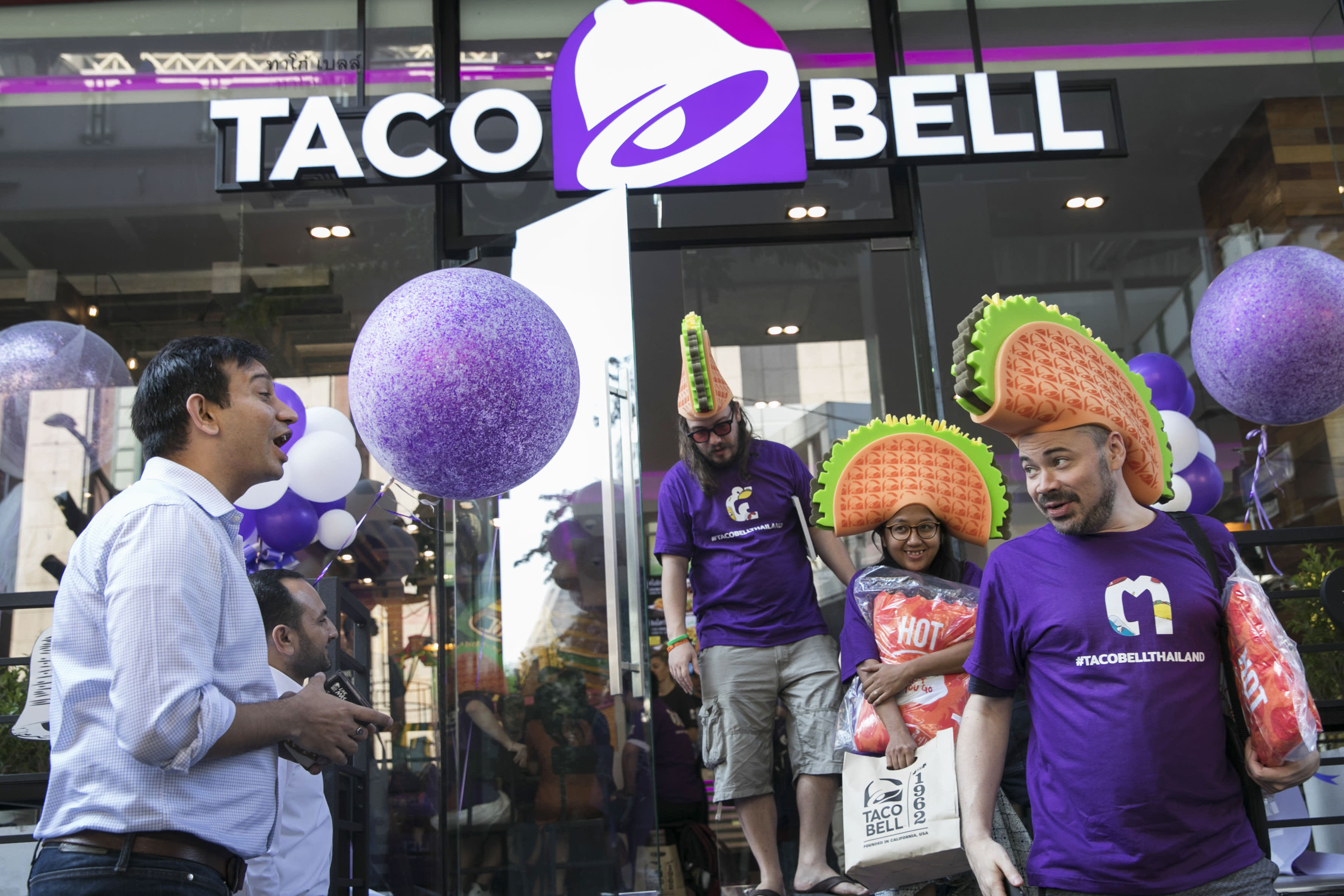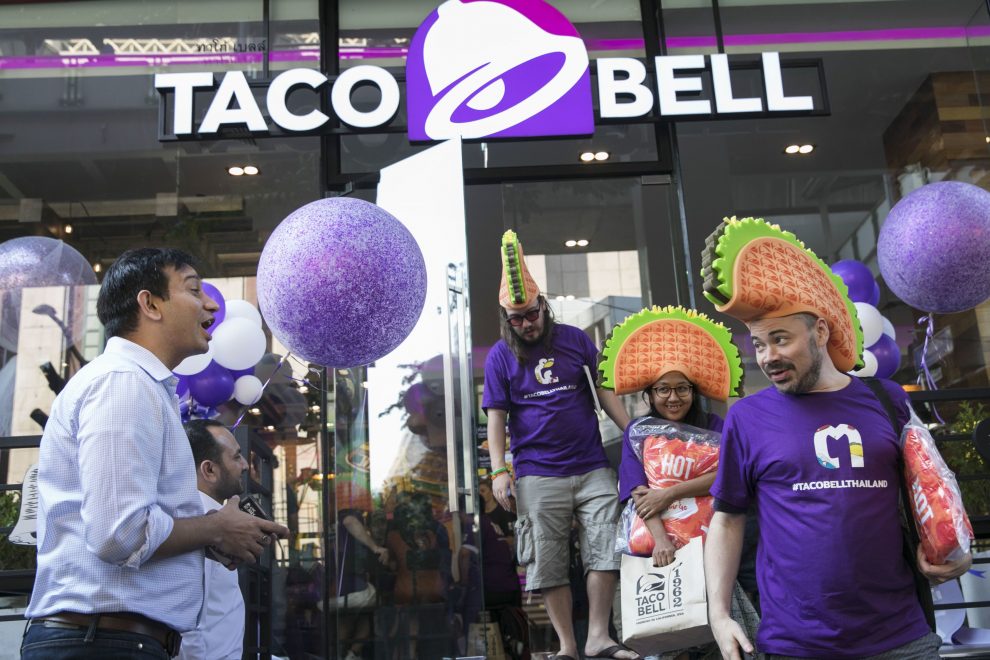
Customers wearing Taco Bell foam taco hats exit the company’s restaurant, a unit of Yum! Brands Inc. in Bangkok, Thailand, last January.
Brent Lewin | Bloomberg | Getty Images
Yum Brands reported second-quarter earnings Thursday that beat Wall Street’s expectations, sending its shares up more than 6%.
Here’s what the company reported compared with what Wall Street expected, based on a survey of analysts by Refinitiv:
- Adjusted earnings per share: 93 cents vs. 87 cents expected
- Revenue: $1.31 billion vs. $1.28 billion expected
- Same-store sales: up 5% vs. 3.01% increase expected
“Second-quarter results maintained early year momentum and helped us to exceed our already high expectations for a strong first half of 2019,” said Greg Creed, CEO of Yum Brands. “Our commitment to being a more focused, more franchised, and more efficient growth company positions us well for long-term success.”
Net sales fell 4% to $1.31 billion, topping expectations. Sales at the company’s stores open more than a year rose 5%, beating Wall Street’s estimates of a 3.01% increase.
Second-quarter net income fell to $289 million, or 94 cents a share, down from $321 million, or 99 cents per share a year ago.
Excluding refranchising gains, tax benefits on special items and other items, Yum earned 93 cents a share, topping Wall Street’s estimate of 87 cents.
Across the board, sales at Yum-owned stores open more than a year beat Wall Street’s expectations.
Taco Bell’s same-store sales grew 7%, compared with 3.75% expected. The chain has consistently been the best performer of the Yum brands, and same-store sales have grown for the past 12 quarters. In July, a shortage of 10-inch tortillas threatened sales at Taco Bell, limiting the availability of some of its popular items, such as burritos and quesadillas. In an earnings call, the company said the supply issue was limited regionally and was not material.
KFC saw same-store sales growth of 6%, topping expectations of 3.68%, while Pizza Hut grew 2% compared with an expected 1.10% increase. The company said it is using Yum’s stake in Grubhub to enhance delivery options at KFC and give consumers an additional way to order at Pizza Hut.
Even though Pizza Hut delivered stronger results this quarter, it has consistently been the company’s weakest division and is still struggling.
The company announced that it will need to restructure some of Pizza Hut franchisees’ businesses to address issues such as having too much debt or a lack of access to capital, resulting in what could be more than 400 store closures.
Yum Brands has a market value of $34.4 billion and is up 22% so far this year.
Last week, the company named a new CEO to its Taco Bell division. Mark King, former Adidas president, will take over the role from Brian Niccol, who left for Chipotle in February 2018.
Yum opened 312 net new stores during the quarter that ended June 30, a growth of 7% from the previous year.
Correction: This story has been updated to reflect that second-quarter revenue fell 4% from a year ago.












